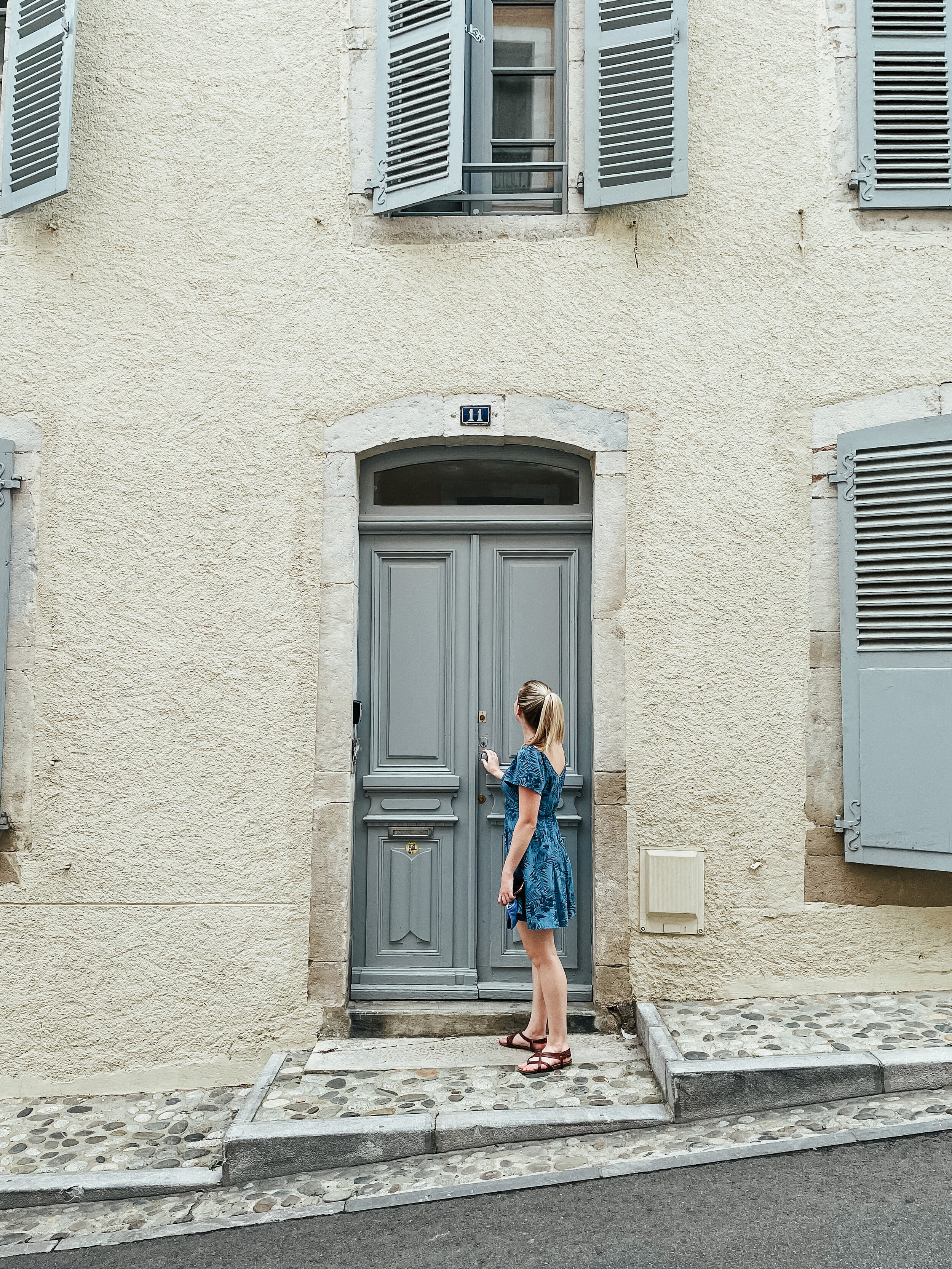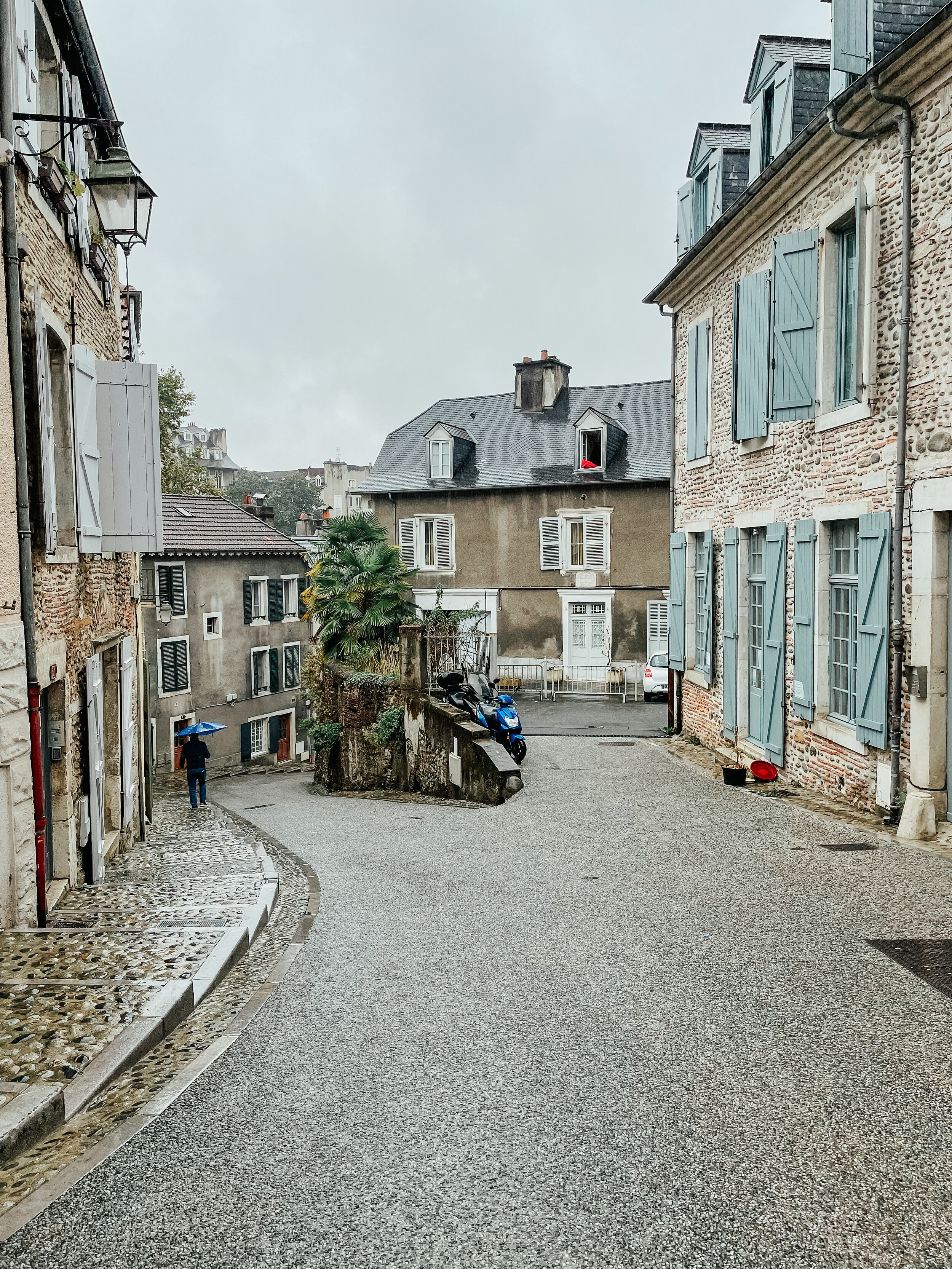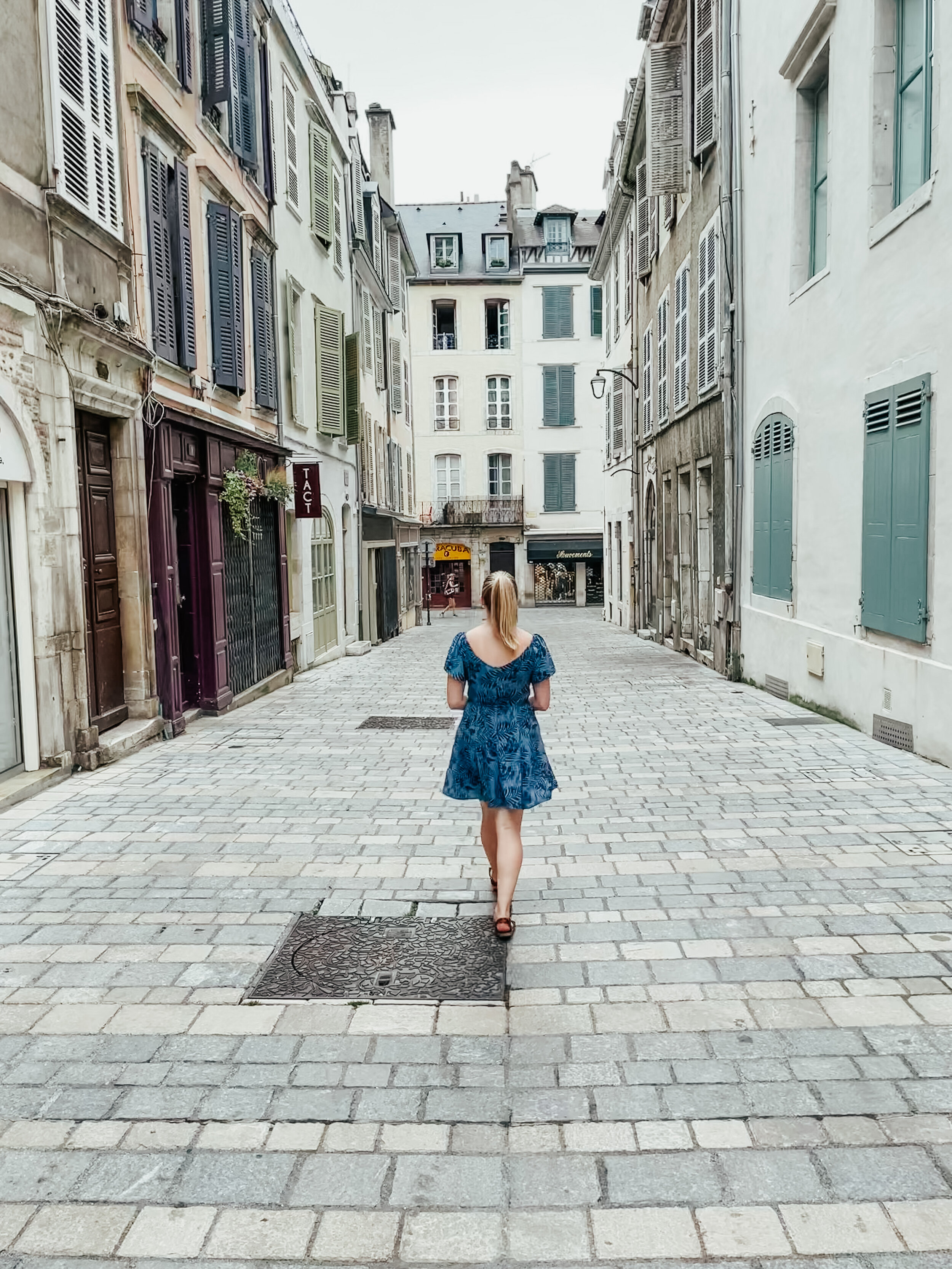Daily Life in France

For the better part of the month, we’ve spent our days in a quiet corner of southwest France.
Even when we mention it to locals or friends, they seem confused as to why we’d visit here. Out of all of the places on the books so far, France has been the most challenging to plan—largely because of our priorities. We wanted a place that I’d have a decent shot of using the language, that’s walkable, that’s affordable, and that has access to the outdoors. If you stay closer to the bigger cities, it’s tougher to use French. In Paris, people would go straight to English and refuse to revert. If you stay in too small of a village, you lose out on walkability. Stick too close to the tourist track, and you’re back to English but at a much higher price. It’s a delicate balance. At one point, I was going town-by-town on Airbnb through regions of France trying to narrow it down. That’s how we found Pau.
We landed on a two-bedroom apartment in le centre-ville on a seemingly quiet street. The kitchen alone made it worth it, and having a TV and a couch this time was a plus. One of the first shocks was the price of food. We had gotten used to the quite affordable grocery prices in Spain, but France seems to be more in-line with the costs in America. Eating out is quite a bit more, though. For that reason, we’ve cooked for all but seven meals this month.
Most mornings, I walk down to a local boulangerie and pick up a couple of “chocolatines” to bring back—not “pain chocolat.” (It’s the same thing.) Apparently, this region of France insists on the name for reasons I have not looked too far into (it’s a whole thing). Luckily, I haven’t made the faux pas. Though, my friend Pauline did confirm my sneaking suspicion that pain chocolat is more of a weekend treat and less of an everyday thing for the French. I was wondering how they stay so slim. The next week, I made a point of adding a few more boulangeries into my rotation; wouldn’t want people to get the wrong impression.
It’s been interesting going from such a vibrant, bustling city like Sevilla to a small city of 80,000 in the countryside. There’s some tourism here, but it’s mostly the British. You can spot them congregating in small groups dressed in oversized shorts discussing what influence they had on the region at one point or another. In that regard, it’s a little easier to stand out because there’s not really a crowd to get lost in. Most people are just going about their days: work, school, or retirement. The paths seem a little more worn here.
There was an expectation that the French would be rude; it’s the stereotype that we grow up hearing. But, I haven’t found that to be the case. If anything, they’re particular. Everything is steeped in tradition from the way breads and wines are made and classified to the way people speak. There are unspoken rules and varying levels of formality, so it can make them seem a little less approachable at times. Most of the people here I’ve talked to tend to be reserved, considerate, and will go out of their way to keep from intruding on your day.
The language has been both encouraging and discouraging. Even in areas like this, it’s surprisingly difficult to use French. When people hear you speaking English, they tend to want to try out their English as much as you want to try out your French. I have a routine with a guy at a local crêperie: I speak to him in French and he speaks to me in English. In a way it works out because I’m certainly going to understand the French I’m speaking just like he’s going to understand the English he’s using. But, there’s a lot more room for error if we’re each listening in our second languages. Still, after most phrases I speak, he tends to laugh. It was startling at first, but I think he’s just excited I’m giving it a go.
My morning chocolatine routine has helped. The other morning, one of the bakers asked me a question. I paused for a moment, but before she could finish repeating the question in English, I had answered her in French. The guy behind me leaned around and in a very thick French accent laughed, “Oh, he’s good.” It’s the small victories lol. On the flip side, it’s difficult to move past small-talk and transactions learning on your own—even spending a whole month in a country that speaks the language. You need some formal instruction, yes, but you also need time in front of people just speaking and making mistakes. The more time you can stay away from your first language, the better. The silver lining to that is I’m also seeing how valuable online instruction can be—whether that’s lessons or language exchanges. And, that can be done anywhere in the world.
The coffee scene is not what I would have expected here. When you picture a French terrace, there’s usually a cup of coffee somewhere in mind. But, lattes, cappuccinos, or any sort of espresso-based beverage with milk can be difficult to find—particularly after lunch. If you need an afternoon pick-me-up, you’d order a café fort or café noir. Anything with milk tends to be served at breakfast to dip day-old croissants in—sometimes in a bowl. The whole take some work to do and sip on a latte thing hasn’t really caught on here.
I’ve also noticed that good coffee and good pastries are mutually exclusive. I have yet to to find a café that serves both well. (This is important work, I know.) The patisseries produce the most intricate and artful creations that you would expect to be critiqued by Paul Hollywood, but the coffee is limited and not that good. Conversely, if you find a coffee shop with more variety, the pastries and bread tend to be more on the Starbucks end of the spectrum. Tragic, I know.
Toward the end of the month, I’ve felt a tinge of homesickness. It manifests itself mostly in cravings for street tacos, though occasionally as driving the 26 to the coast—cup of coffee in hand—or falling asleep with the cat on my chest after a long several days at work. I think it’s because everything feels 20% harder—usually not enough to notice on a single day but enough to make a difference over time: the language barrier, the persistent logistics and planning, the sheer unfamiliarity of the present and the seeming uncertainty of the future. The longer I spend out of my comfort zone, the easier it becomes to look back, to romanticize, and to overlook or diminish the difficult parts of a season. My mom loves to quote Sarah Plain and Tall: “There’s always something to miss no matter where you are.” Now, on the days that I’m feeling a little worn and feel the momentum start to shift, I try and think about the things I’ll miss from this season and remember that all the best things so far have seemed impossible at some point and there has always been an easier, more practical option. One day we’ll look back on the summer we lived in Europe or the month we spent in France and probably miss some things that we don’t see now. Though, I’m willing to bet—it’ll be the pastries.
Things I’m learning (Relearning) this month…
Friendships don’t have to be limited to a time and place if you don’t want them to be.
Patience can be the most difficult thing in uncertainty.
Faith is less about instructions and more about direction. To quote Bob Goff: “Jesus invites us on an adventure, not a business trip.”
Smaller portions aren’t necessarily a bad thing (see pastries).




